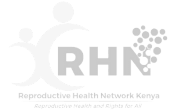Advocacy
We recognize the low prioritization of SRHR in the development of laws and policies by leaders at the national and county levels. This lack of political goodwill leads to misalignment of SRHR laws with constitutional priorities, resulting in limited budgeting towards SRHR resources and the existence of restrictive national laws and policies. which prohibit or criminalize certain reproductive health services limiting service provision by healthcare providers and access to these SRH services for fear of harassment, intimidation or arrest; and adolescents being unable to realize their comprehensive SRHR.
Sociocultural norms also promote gender inequalities affecting women and girls health care as they are left behind in SRHR decision making, economic empowerment and accessing SRH information and services. This predisposes them to harmful cultural practices such as forced and early marriages, female genital mutilation, sexual gender-based violence as well as limiting their right to control their fertility, access to employment opportunities and to progress in their education. These cultural barriers create stigma in accessing reproductive health services forcing women and girls to access these services from untrained healthcare providers and contribute to unsafe abortion in Kenya. Religion remains a major barrier to provision of SRH information and services in Kenya, since most faith-based organizations are against comprehensive SRHR information, safe and legal abortion, contraceptives as they root for abstinence from sexual activity among unmarried women and adolescents and oppose sex work, gender expressions and diverse sexuality. This leads to lack of SRHR prioritization, myths and misconceptions and lack of SRHR knowledge among communities. Religion also has a major influence on SRHR policy development since some policy makers base SRH decisions on religious background.
In order to mitigate these challenges, RHNK engages in evidence-based advocacy approaches incorporating both the public and private sector SRHR and through strategic mapping and partnerships to push for the right reforms. RHNK adopts a human rights approach through meaningful engagement and to ensure everyone can enjoy their SRHR including making informed choices by developing strong provider and youth advocates who champion for progressive laws and policies that promote SRHR as a human right.
To address these challenges, RHNK engages in evidence-based advocacy, partnering with both public - private sector actors and community leaders (e.g. religious and cross-generational leaders) to push for reforms that promote SRHR as a human right.

